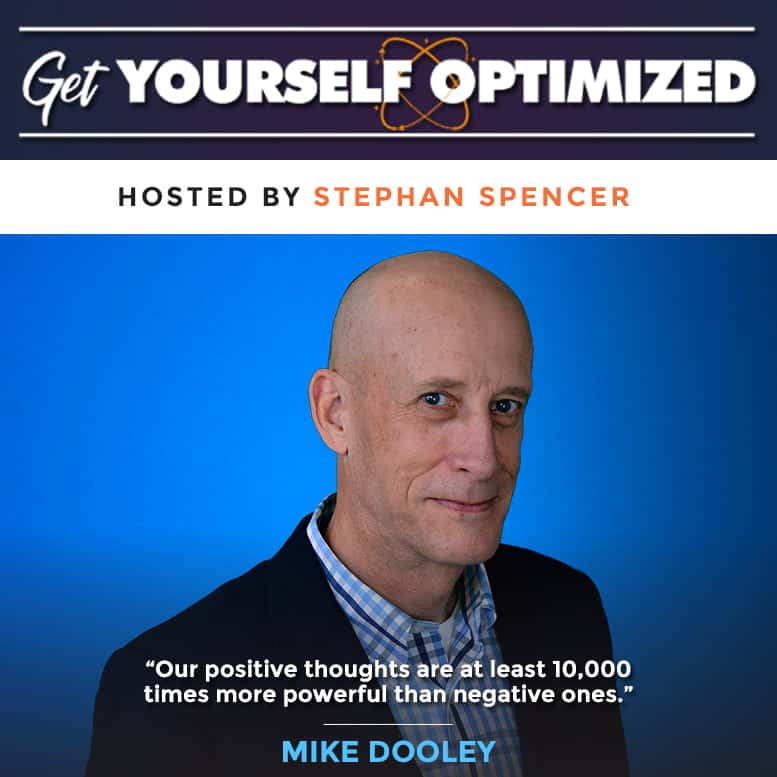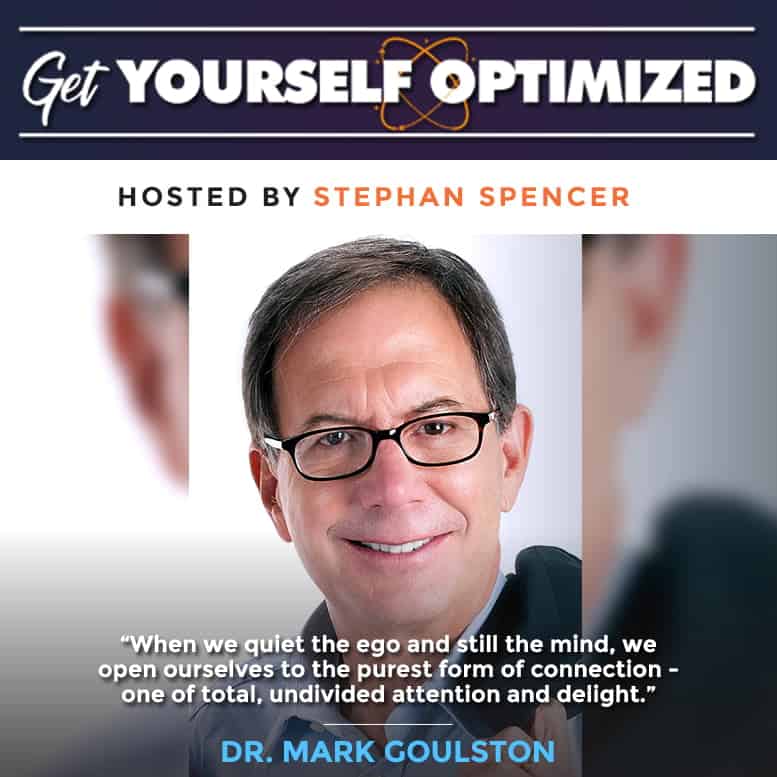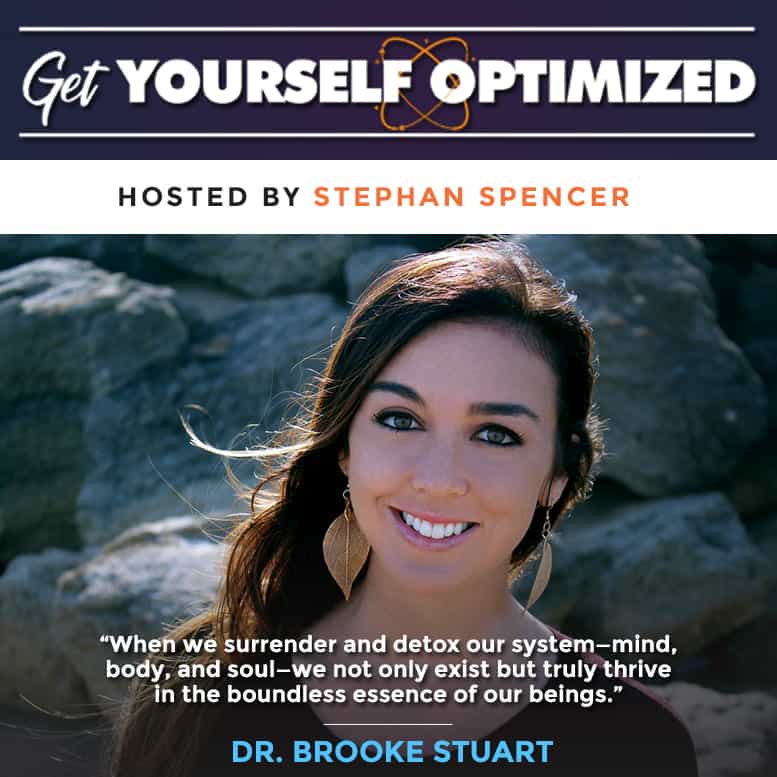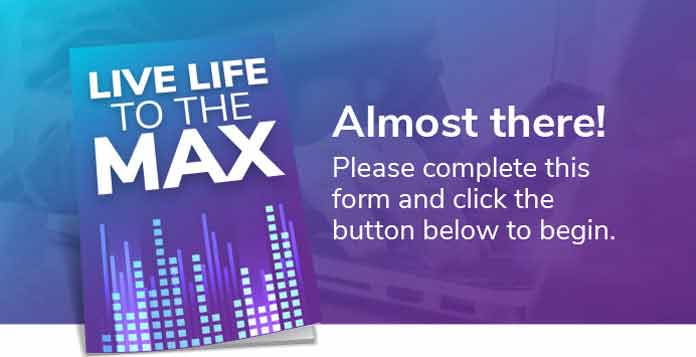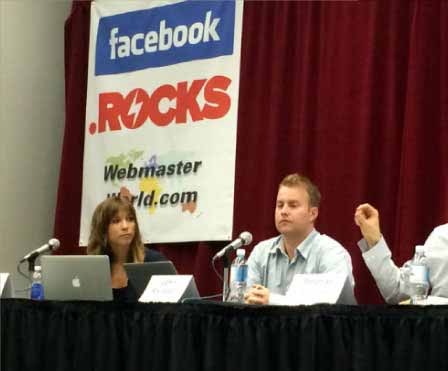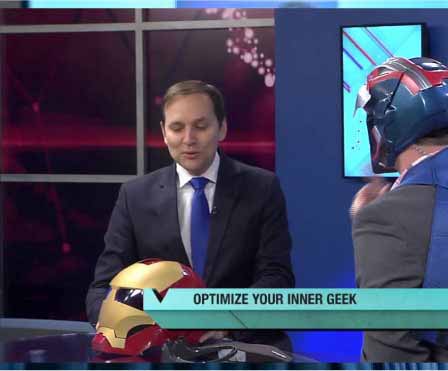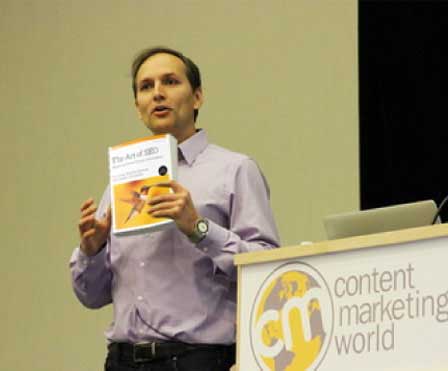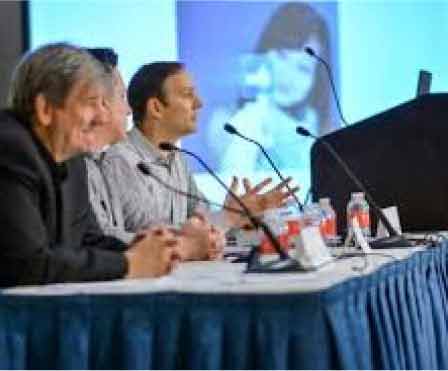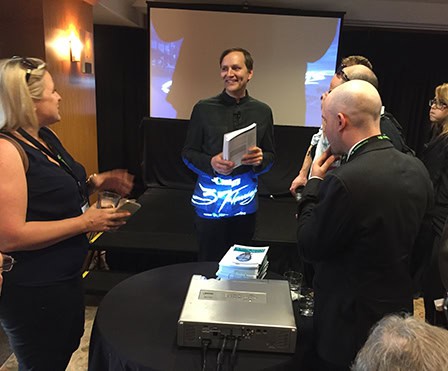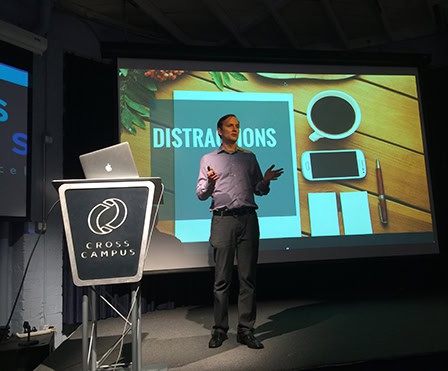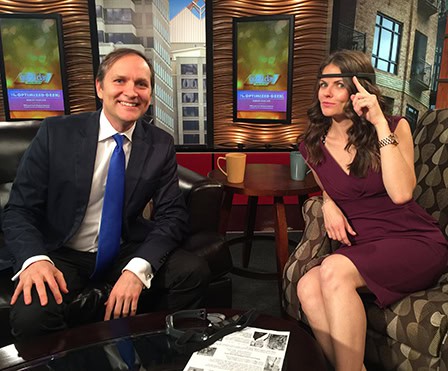Transcript
Don, it’s so great to have you on this show.
Well, it’s great to be here.
Tell me and our listeners what is Wikinomics? It’s an interesting word.
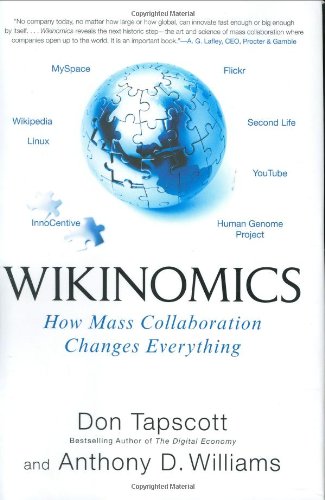
Wikinomics is a book I wrote over a decade ago. It introduced the idea of mass collaboration changing the deep structure of architecture of the corporation. Talent can now be outside rather than inside. We can co-create and co-innovate with customers, employees, all kinds of other stakeholders including those that are outside the firm.
Then a few years later, I wrote the sequel to that called MacroWikinomics, a terribly titled book but it was one of my best books. It didn’t sell that well. I think the title must have something to do with it but it applied the principles of economics to not just the corporation but to many of our institutions – society, education, science, research, city, healthcare, and so on.
Wikinomics itself was a big book. It was the number one bestselling management book in that year in the world, for the whole year.
That’s amazing.
It nudged out The Black Swan, if you can call that a management book.
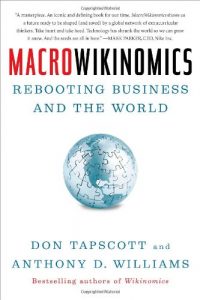
I haven’t read The Black Swan but I’ve been reading Antifragile which I like. But your Wikinomics book is pretty famous and quite an impressive tome. What would be one of the most impactful stories that you’ve heard of somebody applying your principles from either Wikinomics or the follow-up book and changing their business, their ecosystem?
The opening story for Wikinomics was an amazing one. I came across this by accident. This guy named Rob McEwen moved on to the street in Toronto across to me and he held a cocktail party to meet the neighbors. He said, “Oh, you’re Don Tapscott. Cool, I’ve read some of your books.” And I said, “Great. What do you do?” He says, “I used to be a banker and now I’m a gold miner.”
He tells me this amazing story. He’s a funny guy too. He introduces his wife and says, “Here’s my wife. She’s a gold digger.” Anyway, he tells us this amazing story on how he takes it on this gold mine called Goldcorp and his geologist couldn’t tell him where the gold was. He gave them a lot of money, millions of dollars, and they kept coming back with more geological data but they couldn’t tell him where to go into production. After a few years, he’s ready to give up but he had an epiphany one day. He wonders, “If my geologist can’t tell me where the gold is maybe somebody else can.”
He held a contest on the internet called the Goldcorp Challenge. It was basically half-million dollars to anybody who can tell him, “Do I have any gold? Where is it?” He got submissions from all around the world. They used techniques he’d never heard of and for his half-million dollars prize money, he found $3.4 billion worth of gold. The market value of his company went from $19 million to almost $10 billion dollars, almost overnight. I can tell you because he is my neighbor and a happy camper.
It was a very insightful story because it speaks to the core issue of economics which is, where are the uniquely qualified minds to create value for your company? We have this few that our most precious asset goes out the elevator every night, right? Talent is inside our boundaries. Rob McEwen’s most uniquely qualified minds were nowhere in this hemisphere and they’ve never seen his office, let alone his elevator, and they used techniques that he never heard of. For half-million dollars, he increased the value of his company by two orders of magnitude.
It’s this idea that capability now, because of the internet, can be outside not just inside. This is not just some of the tricks he used. This is the early days of a very profound change in the architecture of the corporation and the deep structure of the firm and how we orchestrate capabilities in society to innovate, to discover resources, to build goods and services, and to engage the rest of the world. That was a very powerful story. In MacroWikinomics, I applied that to every institution and the case is, it’s a long story maybe I’ll stop there.
It is a healthy era for entrepreneurship. Small businesses now have the capability of big companies without the main liabilities, deadly bureaucracy, legacy, culture, and so on. Click To TweetThat’s amazing. What a powerful story. Now, have you applied Wikinomics, the idea of crowdsourcing and huge innovations to your new venture with the Blockchain Research Institute?
Yes. We have plenty of staff here, 22. We have a faculty of 80 people outside our borders and they’re the ones who create a lot of the value. These are people I can’t really get to be inside my boundaries. Some of them are the world’s leading thinkers in their area. I can’t hire them but I can access their uniquely qualified minds by building a network. Same is true for our clients at the Blockchain Research Institute, we are founded by 60 large companies and they are now part of our ecosystem and vice versa.
In fact, we’ve been doing this program for a couple of years and we did about 60 projects with all these people. We’re launching another big tranche of projects but we’re shifting our modus operandi even more towards the Wikinomics model, which is we’re not a think tank to produce this research although we do. We’re an organization that curates communities so we have a research community. We have an educational community and it’s turning into a big nook through Coursera. It’s a definitive set of online courses on Blockchain done through one of the top business courses in the world in Coursera.
The people who are in that course are part of our community because they’re building what we call a “Blockchain case commence” part of a course. The fourth module, they have to build it or do a practicum where they come up with use cases in the industry. We’ve researched thoroughly and we have educational community and then we have an influence community, where we’re doing a lot of things to try and change the world and to be more influential. We just held a big event with 1200 people and 150 speakers in Toronto and we’re doing that in other countries. We have a newsletter. We’re publishing articles. We’re publishing some of our research reports. We’re making them available to the world through books. We’re also doing a number of other things that help us be more influential in the world. This is I wouldn’t say eating our own dog food, that is not very… We’re drinking our own champagne, that’s what we’re doing.
I like that. That’s amazing. When you collaborate with these top thought leaders from around the world and you’re not paying them what they would normally have, they probably wouldn’t even be available to be hired, many of them, but what you can do is to collaborate with them and where does the IP then go if let’s say they’re on your faculty or board of advisors or something? And they are not doing work for hire, they are not assigning copyright or intellectual property to you. How do you manage the intellectual property creation and protection process?
Actually, we do pay them and we pay them plenty. It is a work for hire. We hire them to create some new IP for us. Obviously, anything they previously have created, they own. We’ve never dreamed of asking them for future ownership or even rights to that. All we want is for them to do new bold work for us and we co-create it with them. We have an editorial team that’s the best anywhere. Headed by Kirsten Sandberg, former senior editor of Harvard Business Publishing Education. Many of our project leaders, they create a big report and they said it’s been very demanding working with us but they enjoyed it.

We create these other deliverables too from the project. We create an infographic. We create our short video by me explaining the project. We may create a data set, and typically, we create some kind of PowerPoint or presentation where these ideas can be explained face to face to an audience online.
Got it. What would happen, let’s say for our listeners, after reading Wikinomics or MacroWikinomics or one of your other books and applying it to their business? Let’s say they are small business owners, maybe they are a coach or author or speaker, consultant of some sort. What paradigm of shifting advice would they most likely implement first and what would their business look like after they implemented it?
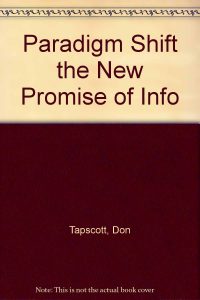
Your use of the word paradigm is not a bad one because a paradigm is a mental model and they put boundaries around what we think. They constrain our actions and they’re often based on assumptions that are so strong we don’t even know that they’re there. I did write the book Paradigm Shift 25 years ago. It’s more than 25 but I didn’t invent the idea of a paradigm, it came out of a book called The Structure of Scientific Revolutions by Thomas Kuhn but I studied that book undergraduate and university ages ago. I thought maybe this could be applied beyond science.
The paradigm is you’re building a business but you got to get the best talent and get them inside your boundaries. Maybe you don’t. Maybe you can be like Rob McEwen and that talent can be outside. You think, “Wow, I got to get funding.” Where did that come from? Angels? Venture capitalists, I guess, or debt loan. Banks will give you a loan only if you don’t need it, right? If you have assets that you’re prepared to put on the line, so maybe there are new ways of raising funds. With Blockchain, you can do an ICO, initial coin offering, it’s a terrible term because it’s not a coin you’re selling. Probably, you’re selling a token that represents something. It’s a currency, or likely to represent a security or an interest in your firm, but you might be launching or selling a token that does something else as well.
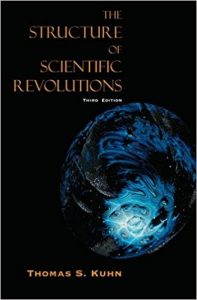
You can go through every part of the business and think about how the old paradigm with the way that we did things is changing and you mentioned small business. This is a really exciting opportunity because little businesses can now have the capability of big businesses without the main liabilities, deadly bureaucracy, legacy, culture, legacy systems and so on. This is a healthy day for entrepreneurship. It’s funny you mentioned this because I just finished my second term as the chancellor of a Canadian university called Trent University. It is a great little university in a beautiful river. It’s the most gorgeous campus I’ve ever seen. Liberal Arts and Science focus but they have a small business school.
This year, I speak to all the classes. Speaking to the business school, I went through a bunch of things that you think of as conventional wisdom but they may in fact not be true. I went through seven of them but the one that’s pertinent here is everyone says you should go get a job. Should you? I mean, I’m not suggesting you just continue your studies, which is a good idea because undergraduate university degree today is sort of high school education of the century.
But rather, maybe you want to consider being an entrepreneur. Let’s help you get some experience in a big company to learn about all that stuff; project managing, budgeting, talent, deal with the organization, politics, and all the rest. But the majority of the people in business school undergraduate, they don’t know it but they are going to end up being entrepreneurs because this is going to be a new theme and it’s becoming a new theme already. Most jobs in the economy are generated by companies that are five years old or less. A lot of them are these big superstars. They’re companies that go to a billion dollars. Get outside the paradigm, get outside the mental model and think differently.
Here’s a radical one, think about a customer. Everybody is like, “How do I create a cool business model with an advertising and monetization model?” Why don’t you think about getting a customer and creating some value for that customer that’s unique that other people are not doing, or that you can do better or at a lower cost? I know, it sounds radical having a customer but it’s pretty radical these days. This is a new environment. We need to think differently to function in it.
How would you think differently about doing an online course and making it unique because there are a lot of online courses out there and a lot of course platforms? Coursera is one of them. Also, Thinkific and Udacity and Udemy.
edX.
So many and they all follow a pretty similar model where you got video lessons and you get badges for completing different aspects of the course. Maybe there’s a community part of the course where you can collaborate perhaps on a private Facebook group and share your challenges and lessons learned from doing the exercises. That’s a great way to convey knowledge but it’s not unique. What would be a momenta model relating to delivering IP through online courses that is a completely different paradigm from what everybody else is doing? And maybe you’re doing it through your course.
It doesn’t matter what your platform is. If your content is excellent, that is what makes you unique. Click To TweetI don’t agree with the way you’re posing the questions because the platform is not what makes it unique, it’s the content. You can say, “Hey, why did you write Wikinomics? There’s McGraw-Hill. There’s Penguin, Simon & Schuster, all kinds of different platforms. Well, it’s the content of Wikinomics that made it unique. You can say to Taylor Swift, “Why are you putting your music on Spotify and iTunes?” In her case, I did choose an interesting one because she’s trying to disrupt the platform, for sure, it is needed in the music industry.
But if you’re creating an online course, you can try and wing it yourself and just post it. What is a course these days, anyway? You can do podcasts, they’re kind of a course, aren’t they? They are a series of educational modules. There’s a lot of growing numbers of really interesting ways to reach people with content and value.
The key thing is, what’s your differentiated value proposition? We have four courses with Coursera on Blockchain. Why are they different? Coursera actually offered us the exclusive for Blockchain business education because we are not just a couple of guys, me and Alex, who wrote the bestselling book on the topic. We happen to be basing that course on about $10 million worth of research that we are doing. Some people take the course to get access to insights.
We’re basing the course on a couple of other things, on the unique experience of the presenters and authors of the course. I’ve been at this for years, as long as anybody honestly, it was 1970 when I started writing about the multifunction workstations connected to a vast network of networks. Then you got a fresh one like Alex who comes in with a different and unique angle that adds to that. We have access to practitioner video that other people don’t have because we work with the largest companies in the world.
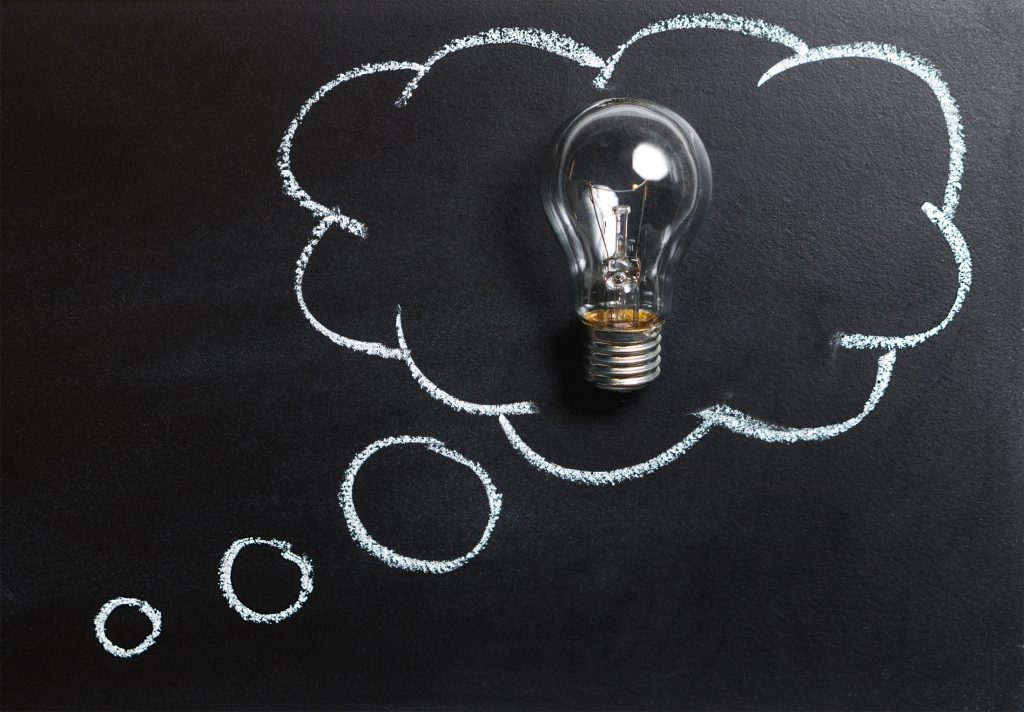
We also have a doctor, Lisa Acosta, one of the world’s leading educators focusing on online education. She was the architect of the whole thing and she works full time for us. She basically designed and built that whole course. We have a business focus, it’s not about crypto. It does get to a good question, competitive advantage is all about having a differentiated value proposition. There are a billion podcasts, what makes yours successful? There are not a billion, but lots.
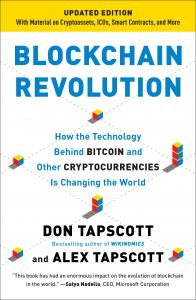
There are lots of business books. Most of them are garbage, not because they’re not well written or they don’t tell good stories or something, although many of them don’t. They’re not helpful because they don’t have a unique idea or a fresh point of view. It’s a rare thing in terms of business books. If someone comes along with their fresh ideas, Wikinomics was one and I think Blockchain Revolution was another one.
I think about books, Joe Pine writing about mass customization. Peters and Waterman, way back 30 years ago, In Search of Excellence. That was a good and fresh idea that you can achieve excellence. They’re not that many, in the whole digital thing. Nicholas Negroponte’s book Being Digital is still a great read today, almost more than 25 years later. It’s a topic I’m fascinated by, could go on and on about it.
This is a really great discussion. I wasn’t presuming that the platform would be the differentiator, although it could be with regards to the underlying infrastructure of the online course or whatever. It really is much more about the IP and the content than anything. Taking, as you say, a fresh perspective, you used singers and songwriters as an example. As you share an interesting example in relation to that, I think it’s illustrative of how fresh thinking and different mental model or business model can really have a huge impact.
Ariana Grande, a very popular singer, she performed at Coachella. She was a pretty shrewd negotiator and got $8 million for that performance from Coachella. Beyoncé also did a performance at Coachella, she was actually a much shrewder negotiator. She only got $4 million from Coachella but she negotiated filming rights so she was able to film the event and she partnered with Netflix and made $60 million. That’s pretty cool.
If you are open to thinking differently and maybe have some structure that allows you to do it, I don’t know if it’s just tapping into the gig economy or having people working from all over the world. My team is all virtual, I used to have a company that I sold and we have had physical offices. I always hated going into those offices, I felt like I got so much more work done at home than I did in my office. I get disturbed all the time by team members with these knocks on the door or like, “Got a minute?” All these got minute meetings, it disrupted my productivity and my flow. That’s, by itself, just a great game-changer to be willing to employ a team that is distributed and working from home or coffee shops or wherever.
There are all these different interesting models that are out there and being tested by some pretty big organizations like Zappos’ gone all-in on Holacracy. I’m curious what your thoughts are on Holacracy and maybe some of the other systems out there or structures that are being tried that are non-traditional.
Non-traditional models of the corporation?
Happiness should be a by-product of living a life with meaning and purpose and having good relationships with networks in your life. You do that kind of stuff and happiness is the result. Click To TweetYeah. Holacracy is pretty much out there and working with Zappos while they were implementing Holacracy was interesting. They were a client of mine through that process and I found that not just interesting but personally I would never have implemented it myself, let’s just put it that way. I don’t think that Holacracy is a good fit for most businesses. Are you familiar with Holacracy?
Yeah. This is where our discussion of Blockchain comes in because Holacracy was an idea of time that had not come because the platform to enable it to occur had not developed. Let me just do a little background. The platform for creating decentralized organizations, not just the people spreading around but the way that their management governed is decentralized as well. We’ve been talking about getting rid of hierarchies for a long time, hierarchies are actually a very robust and effective way of organizing capability.
The notion of decentralization is now emerging as a real factor and the reason is blockchain. The way I like to think about it is that this is the second era of the internet for 40 years now. I’ve seen all of them, we’ve had this internet of information. I’ve been involved in creating stuff around it. If I send you some information, a PDF, a manuscript, an email, or whatever, I’m actually not sending you the information, I’m sending you a copy. Even with the website, I keep the original.
That works fine for information but when it comes to assets like money, a security stock, a bond, an intellectual property, a carbon credit, a podcast, a loyalty point, the data in our identities are cultural. Assets like music or a vote, a vote is an asset because it is something of value that belongs to somebody. When it comes to assets, sending copies of those is not a great idea, you don’t want someone copying your vote, your identity, or your proprietary podcast. If I send you $1,000, it’s really important that I don’t still have the money.
Cryptographers have called this the double-spending problem for a long time. The way we manage this problem in our economy is through big intermediaries – governments, stock exchanges, banks, Wall Street, credit card companies, now even social media companies and big technology companies. They perform all of the business and transaction logic for every type of commerce. They identify the asset or the owner, you are who you are.
They clear and settle transactions, you just bought an iTunes, and they keep records. They’ve done a pretty good job but there are growing problems and we document these at length in Blockchain Revolution. I won’t go into it but a big one is they’re centralized, that means they can be hacked. That will still exclude a couple of billion people from the global economy, things take too long. Why does it take seven days for the money to go from a Filipino housekeeper in Toronto to her mom in Manila? Why does she get charged 10% to 20% by Western Union for that?
The biggest problem is they capture our data. The digital age, the new asset class is data and you create it but they capture it in a central kind of way. That doesn’t just mean that our privacy is being undermined, which it is and that’s a real problem because privacy is the foundation of freedom. But it means that you don’t have access to that data or plan in your life, you can’t monetize it and that’s creating the most powerful, the largest companies in the world.
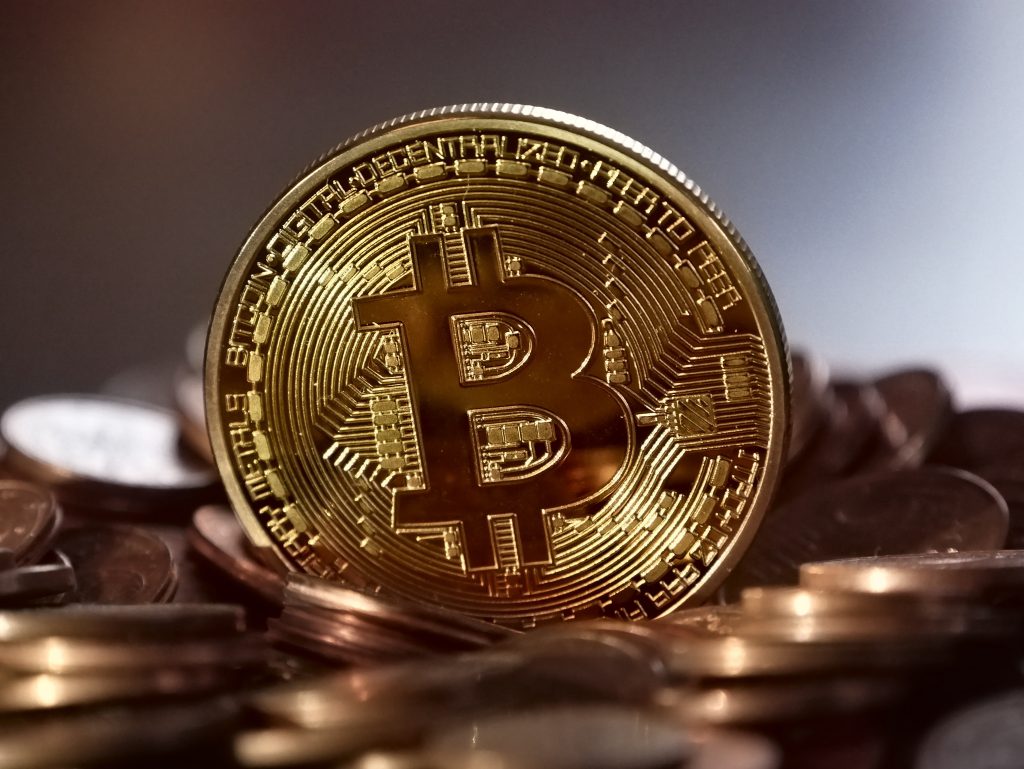
We have this weird thing in our economy where we have a growing wealth but declining prosperity and that’s what’s behind populism and center phobia and all the anger and everything else that exists. What if they were not just an internet of information? What if they’re an internet of value? Some kind of vast global distributed ledger, like a big spreadsheet that everyone has a copy. Anything of value from money to stocks to votes could be managed, stored and transacted in a secure and private way.
We’d have a platform whereby value creation could be done peer to peer and trust would not be achieved by a middleman or be achieved by cryptography or by some clever code. That’s what blockchain is, it’s a distributed system for value. It’s a new operating system for a new kind of decentralized economy.
I’ve been writing about decentralization for decades and exploring the pros and cons of it but now we’ve actually got a platform whereby not just information could be decentralized but the value could be as well. That’s why I’m really excited about the blockchain, this is the second era of the internet, it’s the internet of value.
It’s our first native digital medium for value, that means that you can really have radical models of corporations that work. The one we described, in theory, is in the book, we called it the decentralized autonomous enterprise. We hypothesize that you could have a company with no CEO, no management, no people and be a bunch of smart contracts and distributed autonomous agents on a blockchain. A week after the book came out, this thing was created called the decentralized autonomous organization. It was a venture capital company with no people, it was a bunch of software on the Ethereum blockchain.
Its first job was to raise money, and in three weeks it raised $165 million. An order of magnitude bigger than the largest crowdfunding campaign ever, and then it went about its business. Anyone listening to this podcast that knows the story, knows it wasn’t a happy ending because there was a coding error in one of the smart contract facilities and that enabled the hacker to get in there and to get control over $50 million which after a month he’d be able to actually get out of the company. I’m not a hacker, I’m just doing what the smart contract allows me to do. The end result was that the creators of this thing shut it down.
Imagine this, we had a company with no people, that was purely software in a blockchain completely distributed and they raised $165 million. There’s something going on here and you don’t know what it is. We are in the early days to some big changes in the architecture of the firm in the sense that it can become more decentralized now but also potentially in the way our economy works and that would be a very exciting development.
How would a listener, let’s say that person runs a marketing department or runs a company and that company has a marketing department, how would you reorganize, if you were them, for the future? Because we don’t have a new operating system in place yet, Holacracy or whatever new construct that you implement doesn’t have the underlying infrastructure yet, but you can start making changes to your marketing department or just your organization to prepare it for this new future that’s coming and somewhat futureproof the business because just going through the motions as a traditional business is not going to really prepare you for this inevitable future.
Absolutely. There are a lot of things that you can do to start to get prepared, let me address that first. I used to say this in the early 90s about the internet that a precondition for understanding this is personal use. I used to tell executives, “You have to use the internet with your own fingers.” Secretary’s fingers don’t count. Receiving a photocopy of a website doesn’t count. You got to go on there and do it. Of course, back then, a lot of people are uncomfortable because “I’m a manager, I don’t type. Do I look like a secretary to you?” People tell me.
You don’t want the news to come to you, you want to be informed. It’s your responsibility as a citizen. Click To TweetIt’s the same thing today, go download a wallet. Go buy something, some bitcoin or some other crypto and then spend it. Go and purchase something with that crypto. You can do that in a few minutes and you’re going to learn a lot about how the stuff works in minutes. People need to get informed, this sounds self-serving but I think Blockchain Revolution is a great way to start, just read chapter one of that book. I say that because if you do read chapter one, you read the whole book, that’s what I found. That’s a good way. There are lots of other things, a lot of great videos. My TED talks have been viewed by over 4 million people on this.
You need to start to experiment a bit with the technology, do a pilot. There are other ways to get informed. At the blockchainresearchinstitute.org, a lot of our research we’re making free to the public. Some people listening to this will come from big corporations that are members, they have access to the whole thing, millions to billions of dollars of research.
You mentioned marketing, we did some projects on what does this mean for the CMO, what does this mean for the brand, a lot of stuff on marketing but we also have done projects on what does this mean for the Chief Financial Officer, accounting. This is the biggest change in accounting in 300 years, you got a debit and a credit before, and now you have a debit, a credit, and a real-time entry on blockchain. In a sense, you have a real-time balance, that is a mind boggler.
For the head of HR, what does that mean to have capability and talent outside your company? For corporate council, what does that mean to have smart contracts? Has there ever been a bigger change in the way the law works at least in the last 100 years?
You’re head of operations. A supply chain is a $50 trillion business, all that pretty much is going to move to this distributed ledger technology. We’ve done cases now, there are publics and stuff in the book too about Fox Conner, it’s one of the biggest supply chains in the world, ditto for Walmart implementing blockchain for food safety. This has really big implications for every part of a business.
That sounds almost overwhelming.
It is overwhelming and I don’t know what to do about that, it’s sort of the story of my life. What do you mean? Everybody is going to use a computer? That’s the way it started, people used to say, “You’re nuts, I’m never going to learn how to type. It’s overwhelming for me.” A mobile device, they can do things other than telephony, “I’m never going to look at that stupid little screen.” There have been these various transparencies, why should my company be open? Would that make a lot more sense to be super closed? Rob McEwen found out differently. By opening up, the boundaries of his firm increased the value of his company by two orders of magnitude, so 1000%.
These are all big changes that get, I don’t know what to do about it. It’s the time with big disruption and big change. Mistakes are very high too, not just in terms of building an effective business but you think about some of the big and trackable problems that we have. Climate change is a huge thing. If we reduce carbon by 80%, in the year 2050 it’s still going to take a thousand years for the planet to cool down. In the meantime, some bad things are going to happen regardless of what we do, you’re looking up to a billion people losing most of their water supply in the next decade.
Through the internet, the most unique and qualified minds can be outside not just inside your borders and boundaries. Click To TweetAgain, blockchain comes into that. A company where I’m working with called carbon.ca is tokenizing carbon products. But there are also really big changes in terms of how we think of our own lives and I know that you care about that a lot. One of the things I said to these graduates, the conventional wisdom that you should forget is everyone says, be sure to have work-life balance. I said, “Don’t do that.” That paradigm is wrong, there’s a period in your day where you work and a period in your day where you have a life.
How it works is a period in your existence where you work and then you get to retire and you can have a life if you don’t have a stroke or something first. Work should be meaningful, find or make something where you’re living during the day. For the non-work part, don’t just go and have a beer and watch a football game or whatever or do other things. Do an activity that’s purposeful, the life part of your day, get involved in your community, have a political point of view and be active. Have a family, not just have a family but to try and get a new generation of young people that are going to be principled and want to live a consequential life as you do.
You mentioned environments and climate change, this really frightens me and worries me that we’re going to have an environmental disaster of big proportions. Most of our lifetimes, most of our listeners will experience this massive loss of species and of environmental resources and life that will happen over the next 10, 20, 30 years. I’m curious what you would recommend our listener do to have more than just a small impact by being more conscious about how they’re recycling.
I just read an article about this horrible economic system of what happens to the recycling after you throw it out, it ends up in these third world countries and people in Vietnam are picking off the stickers and things that are not recyclable. They’re breathing in toxic air as these plastics are melted down and stuff, it’s horrible. What’s a person to do to have more than just this tiny impact as one drop in an ocean of what needs to happen?
Your assertion at the beginning is correct, I think. It doesn’t matter what we do, this is going to be bad in the short term. Imagine a billion people losing their water supply, you think we have a migration problem today? What does that do for terrorists and with tribal wars or crime or all the big medical problems that could result in that, that can affect the world because everything is connected to everything else? There are a lot of things individuals can do and I’m a big believer in that but I’m a big believer in trying to find incentives to get everybody to change, that means individuals. That’s what CarbonX is.
We need to re-industrialize the planet Earth, we need to mobilize the world. We’ve been mobilized before in the last century but it was around world wars. We’re on different sides and we all need to be on the same side on this one. We need to get some economic consentient to encourage people to do that because they’re not going to do it just because they listen to this podcast or because they heard Al Gore with another great speech. That’s what CarbonX is trying to do, we tokenize carbon credits. We’re going to buy the carbon-neutral express machine because it comes with all these tokens that you can use, trade, and turn them into money if you want fiat currency.
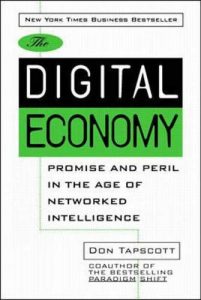
Ultimately, we need institutional changes. We need corporations and governments to behave differently. A real starting point is we need people who think science is an okay idea. This is one of the problems of the internet, I wrote about this in 1994, in my book The Digital Economy, I said, “I think the internet is going to be great because it will move us away from being centralized. One way and one size fit all. Everyone is a passive recipient model of everything – media, production, education, healthcare, but some things could go wrong.” I talked about a bunch of things that could go wrong.
When I wrote the 20th Anniversary edition of the book, I’m sorry to say that all of them did go wrong. One thing that happened, I thought the internet would bring us all together because we’d all have access to the same information but of course what has happened is we’d up in these little following our own point of view. They’re more like self-reinforcing echo chambers. The purpose of the information is not to inform you, it’s to give you comfort for your preconceived ideas. That’s a big problem.
It means that crazy stuff around vaccinations or climate change, we’re probably going to have another plague of some kind and it’ll require that to wake people up to basic science around medicine and vaccinations. Climate change is the most pernicious one, I think it’s criminal. It’s criminal because it will be a crime resulting in the death of untold numbers of people and total calamity on this planet to be a climate change denier, I know the scientists are.
It is a crime against humanity. I couldn’t agree with you more.
Speak out, have a point of view, vote for people who don’t deny science. Speak out for rational behavior, organize. This is not just about being careful with your recycling, even that has got a lot of problems, as you pointed out. This is about building a global movement, now is the time to organize. I’m hopeful that we’re in the early days of the mobilization on this planet around this issue.
This would be our final question, what would you tell the naysayers? There are a lot of them out there, naysayers about blockchain, about bitcoin, just dropped off in the cliff and that was a really stupid investment that you made or naysayers about climate change or naysayers about just being prepared for disruptive technologies. What do you tell these folks when you find them? Especially they’re in their family or partners in your business.
I’m a naysayer about some things but blockchain, we had a bubble and it crashed. If you bought bitcoin a couple of years ago, you would’ve quadrupled in your investment, it’s now back to almost half of what it was in its total peak. There are other awesome platforms out there that represent the new internet. The old internet, you couldn’t own it, the new one, you can. You can be an investor in the actual protocol. You have these companies, ones that I have an investment in. I don’t recommend investments to anybody like Cosmos and ICON, Ethereum, powerful platform.
This got nothing to do with cryptocurrencies anyway, I don’t think. We’re not nothing but that’s not where the real opportunity is. Right now Facebook is launching its own currency. As far as currencies go, this is the big disruptor, two billion people have access to financial services. This is staggering and most people have no idea what’s going on here and it’s going to move a lot of power towards Facebook and its partners. This is not fundamentally about currencies, this is about the underlying technology. It’s about being an informed citizen, it’s the same thing around climate change.
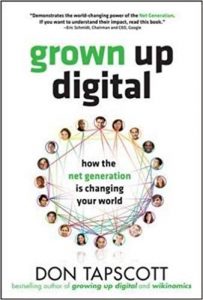
I care, I give a damn. I wrote the book Growing Up Digital, 1997. I remember interviewing a young person on stage and I said, “How do you keep yourself informed?” She said to me, “If the news is important, it will come to me. The newspaper, why would I read that? It’s a day old and you get these black stuff on your hands.” I thought that was all cool at the time, I don’t think it’s cool anymore.
You don’t want the news to come to you, you want to be informed. It’s your responsibility as a citizen. Big corporations say, “Climate change is a bunch of crap.” Get yourself informed, find out what the actual people who know the science is, who don’t have a big vested interest and think. All the scientists in the world have got together and created a big scam. That must’ve been some convention, how did they get such a big secret meeting to pull off this giant hoax?
It was the Illuminati, they organized it.
Be informed, be active, live a principled life and try and live a life that’s consequential. Don’t try and be happy, it’s another one of my radical things I said last week, “Happiness should be a by-product of living a life with meaning and purpose and having good relationships with networks and having loved in your life. You do that kind of stuff and happiness results.”
I like that. It’s like how you create money rather than earning it by creating value, living your purpose, and living a life of meaning. Money will be a by-product and so will happiness, I love that.
Thanks, it’s very delightful talking to you.
Likewise. Listeners, do something with this. At least start by learning about this new future of a decentralized economy, of the internet of value. Pick up one of Don’s books, watch his TED talks. This is your host, Stephan Spencer, signing off. A big thank you to Don Tapscott for sharing his wisdom. Thank you, Don.
My pleasure, Stephan.
Important Links
- Don Tapscott
- Facebook – Don Tapscott
- Twitter – Don Tapscott
- Instagram – Don Tapscott
- LinkedIn – Don Tapscott
- Youtube – Don Tapscott
- Blockchain Research Institute
- Don Tapscott’s TED Talks
- Don Tapscott’s Books
- Wikinomics
- MacroWikinomics
- Paradigm Shift
- Blockchain Revolution
- The Digital Economy
- Growing Up Digital
- The Black Swan
- Antifragile
- The Structure of Scientific Revolutions
- Mass Customization
- In Search of Excellence
- Being Digital
- Rob McEwen
- Goldcorp
- Harvard Business Publishing Education
- Coursera
- Thinkific
- Udacity
- Udemy
- edX
- Trent University
- McGraw-Hill
- Penguin
- Simon & Schuster
- Taylor Swift
- Spotify
- iTunes
- Ariana Grande
- Coachella
- Beyoncé
- Netflix
- Zappos
- Holacracy
- Fox Conner
- Walmart
- Carbon.ca
- CarbonX
- Al Gore
- Massive open online course
- ICO
- Where does your plastic go? Global investigation reveals America’s dirty secret
Checklist of Actionable Takeaways










 About Don Tapscott
About Don Tapscott
Don Tapscott, Executive Chairman of the Blockchain Research Institute, is one of the world’s leading authorities on the impact of technology on business and society. He has authored 16 books, including Wikinomics: How Mass Collaboration Changes Everything, which has been translated into over 25 languages.
Don is also a member of the Order of Canada and is ranked the 2nd most influential Management Thinker and the top Digital Thinker in the world by Thinkers50. He is an Adjunct Professor at INSEAD and Chancellor of Trent University in Ontario. It is hard to imagine anyone who has been more prolific, profound, and influential in explaining today’s technological revolutions and their impact on the world.
LOVED THIS EPISODE
Please consider leaving me a review with Apple, Google or Spotify! It'll help folks discover this show and hopefully we can change more lives!
Rate and Review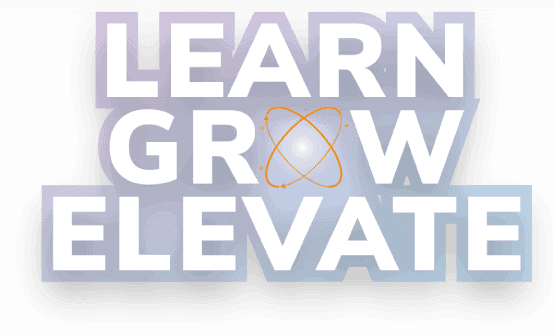
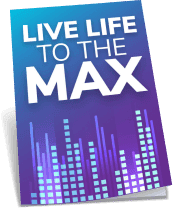
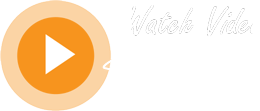





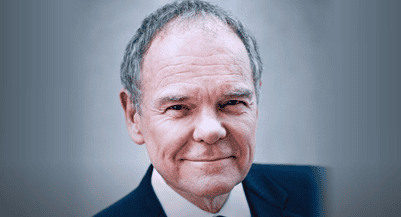
 About Don Tapscott
About Don Tapscott